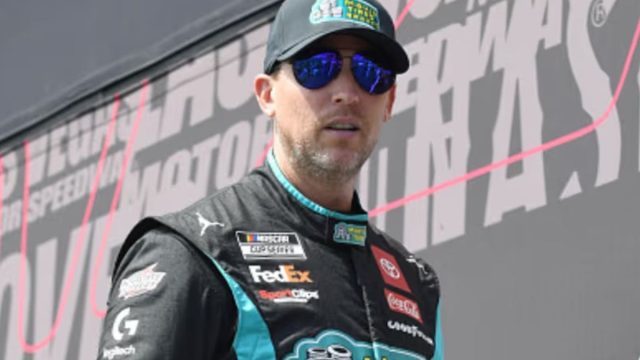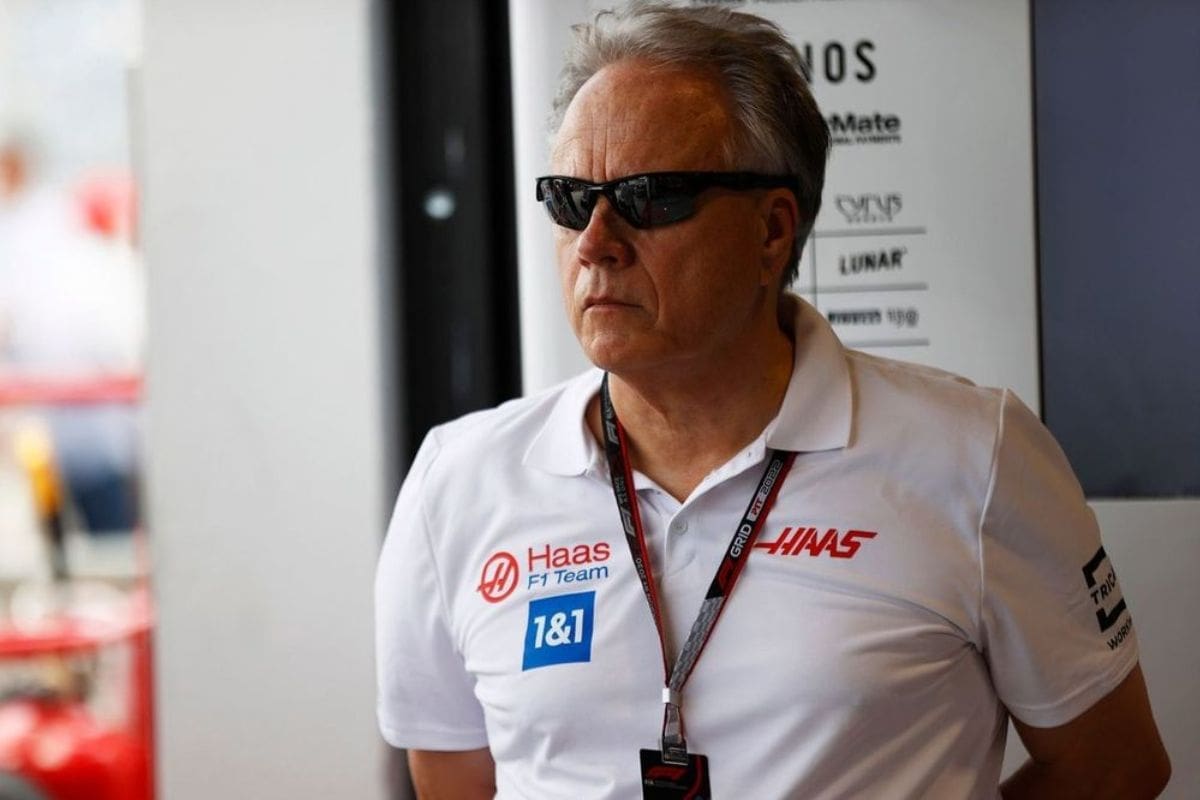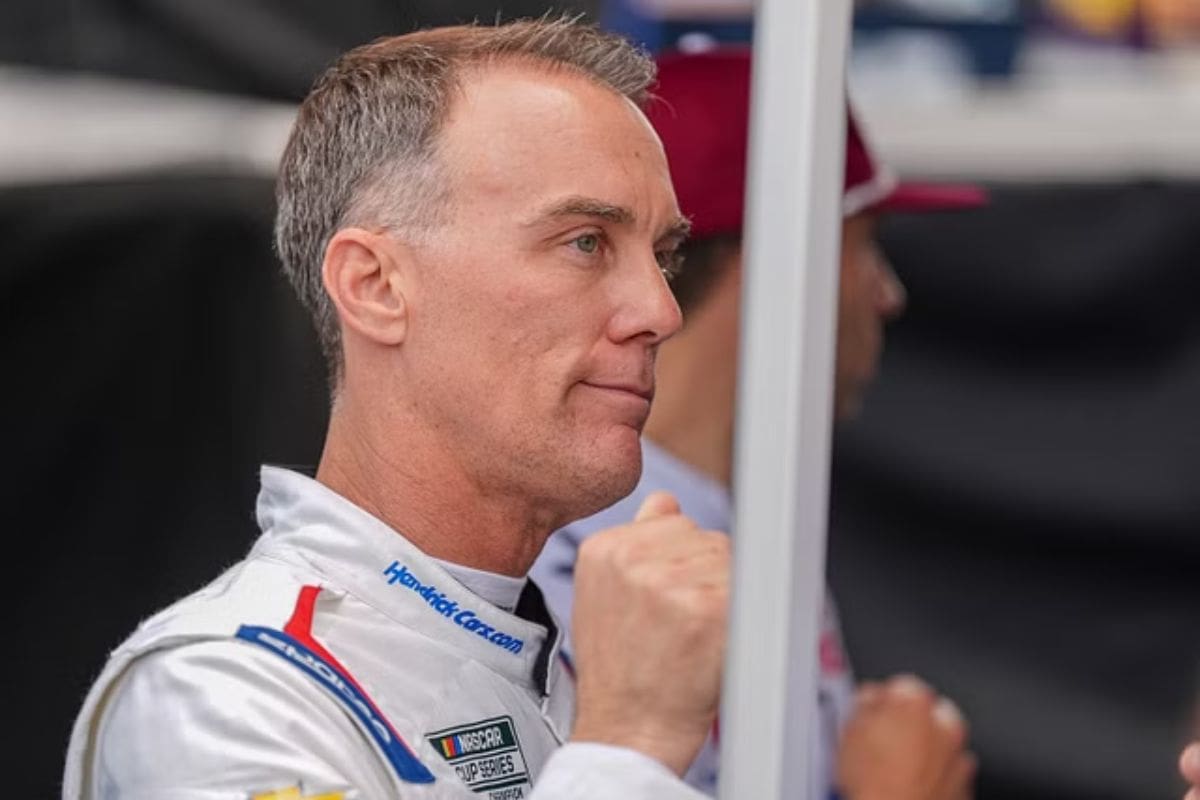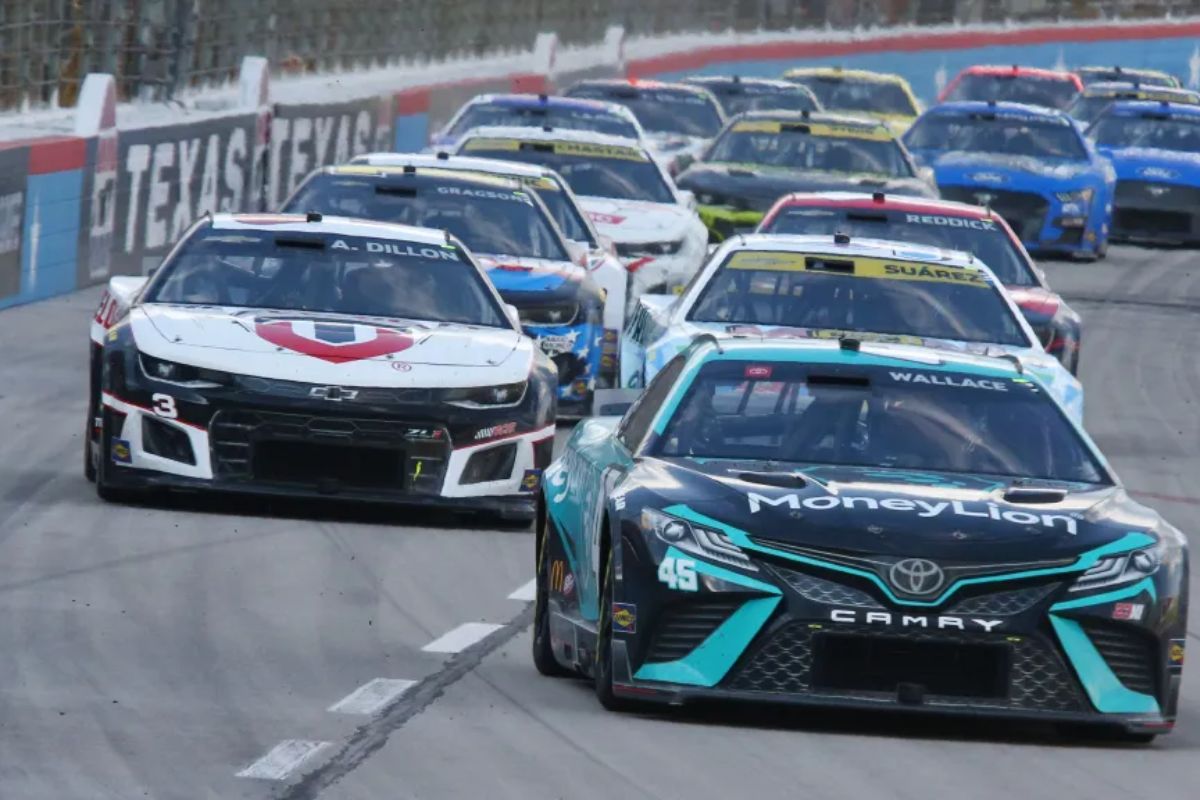Denny Hamlin blames NASCAR for the decline of Stewart-Haas Racing (SHR), highlighting the organization’s systemic issues that have left it vulnerable. He points to the loss of major sponsors and operational challenges that have emerged since 2021. Key figures, including Tony Stewart, have shifted focus elsewhere, diminishing leadership engagement and exacerbating financial instability. Amid competition for sponsorship, Denny Hamlin’s remarks suggest that NASCAR’s economic structure is failing teams like SHR.
Key Highlights
- Denny Hamlin emphasizes that NASCAR’s economic structures have contributed to the vulnerability of teams like Stewart-Haas Racing (SHR).
- He suggests that competitive sponsorship dynamics have unfairly disadvantaged Stewart-Haas Racing (SHR) amid financial struggles in the NASCAR landscape.
- Hamlin points to the lack of support from NASCAR in addressing sponsorship competition as a major issue for SHR.
- The decline of SHR reflects broader systemic problems within NASCAR’s economic framework, impacting team viability.
- Hamlin argues that NASCAR must reassess its sponsorship strategies to ensure equitable resource distribution among teams.
Uncertain Times: Gene Haas’ Ominous NASCAR Prediction Comes True
The landscape of NASCAR has shifted dramatically, as Gene Haas‘ foreboding prediction about the future of Stewart-Haas Racing has materialized with alarming clarity. His reflection in early 2024, stating, “As long as you can survive, you always have another year to prove your worthiness,” encapsulated the precarious state of the organization.
By mid-2024, it became evident that the NASCAR team, once a powerhouse in the NASCAR Cup Series, was grappling with profound operational challenges.
The decline of Stewart-Haas Racing can be traced back to 2021, when financial difficulties and dwindling sponsorships began to undermine its competitive edge. As these issues intensified, the NASCAR team found itself ensnared in a vicious cycle of underperformance and reduced visibility, alienating potential sponsors and contributing to a negative feedback loop.
The eventual departure of prominent NASCAR owners, including Tony Stewart, marked a notable turning point, suggesting a loss of faith in the team’s path.
Denny Hamlin’s assertion that this exit was premature adds another layer of complexity to the narrative. It raises questions about the sustainability of the current NASCAR landscape and the inherent risks of withdrawing from a struggling organization.
As the consequences of Haas’ predictions continue to unfold, it is imperative for stakeholders within NASCAR to address the systemic issues that have left Stewart-Haas Racing vulnerable.
Tony Stewart’s NHRA Focus and Kevin Harvick’s Views on SHR’s NASCAR Decline
Amid the ongoing challenges facing Stewart-Haas Racing (SHR), Tony Stewart‘s decision to concentrate on NHRA racing marks a substantial shift in focus that could further impact the NASCAR team’s path. By stepping into a more prominent role in the NHRA and replacing his wife Leah Pruett in Top Fuel racing, Stewart signals a potential disengagement from the day-to-day operations at SHR.
This pivot not only reflects his personal ambitions but also raises questions about the future leadership and direction of the NASCAR team.
Former SHR driver Kevin Harvick has noted that Stewart’s shift may have exacerbated the challenges confronting SHR. Harvick’s insights suggest that a leader’s commitment to a different racing discipline can inadvertently create a vacuum in focus and resources.
As a NASCAR team that has historically thrived under Stewart’s guidance, his diminishing presence could lead to a decline in competitive performance and cohesion.
Denny Hamlin’s observations align with Harvick’s concerns, as he too recognizes that the changing priorities of SHR’s ownership may be contributing to the team’s struggles.
Hamlin’s perspective highlights a broader issue within the organization: the potential fragmentation of focus among its key figures. As Stewart redirects his attention to NHRA, the implications for SHR’s operational efficiency and competitive standing in NASCAR become increasingly apparent.
Kevin Harvick’s Insight and Denny Hamlin’s Reflections on SHR’s Sponsorship Troubles
Recent developments at Stewart-Haas Racing (SHR) have raised considerable concerns regarding its sponsorship landscape, particularly in view of Kevin Harvick’s departure and the subsequent withdrawal of key sponsors. Harvick’s insights have emphasized a troubling trend at SHR, where the loss of iconic brands like Smithfield and Busch Light indicates a deeper vulnerability. His perspective points to a decline in performance, with only four NASCAR Cup Series wins since 2021, exacerbating challenges in renewing the ford/”>Ford Performance alliance.
Denny Hamlin acknowledged Harvick’s frank observations and emphasized that the limited involvement of Tony Stewart and Gene Haas has contributed greatly to SHR’s current predicament.
“It was good to see him sit down with Kevin. I know that Kevin was quite pointed with some comments…just kind of how absent they had been at Stewart-Haas Racing. And Kevin was quite critical of those guys.”
“I think this is something that is the head of the snake that we at 23XI or Front Row are talking about.” – Denny Hamlin
As Stewart shifts focus towards Top Fuel racing and Haas prioritizes Formula 1, SHR appears increasingly isolated and vulnerable in the competitive NASCAR landscape. This evolving scenario highlights the essential importance of leadership engagement and tactical sponsorship alignment for the future viability of SHR.
NASCAR’s Economic Landscape and Denny Hamlin’s Critique of Sponsorship Competition
Hamlin’s observations about Stewart-Haas Racing‘s challenges reflect a broader trend within NASCAR’s economic landscape, where the sponsorship environment has considerably shifted. In previous years, the series enjoyed an influx of funding from Fortune 500 companies keen to associate their brands with the sport. Today, however, that landscape has drastically changed, with NASCAR teams now vying for sponsorships not only among themselves but also against NASCAR as an institution.
“There were so many Fortune 500 companies that they could not find a car to get on…back then, 10-15 years ago.” – Denny Hamlin
This competition has left only a select few organizations, such as Hendrick Motorsports and Team Penske, in a robust position to secure the necessary financial backing.
Hamlin emphasizes that the decline of Stewart-Haas Racing is symbolic of this systemic issue. The loss of manufacturer support, as noted by Tony Stewart, precipitates a “downhill” path for teams, highlighting the fragility of their financial viability. This reliance on major corporate affiliations reveals a glaring reality—NASCAR teams are increasingly tethered to the fortunes of a few large sponsors.
“Tony said that if you don’t have a manufacturer deal that they ended up losing based on their performance, and then you start to lose sponsors – then it’s going downhill…I don’t have a Penske Truck rental, and I don’t have Hendrick Automotive to be able to sponsor my cars.” – Denny Hamlin
Hamlin’s own NASCAR team grapples with a limited sponsor base, illustrating a broader concern about the sustainability of mid-tier teams.
The challenges faced by Stewart-Haas Racing highlight the need for NASCAR to reevaluate its sponsorship strategies, ensuring a more equitable distribution of resources that can energize the entire field rather than leaving many teams vulnerable in an increasingly competitive market.
Warnings for Top Teams and the NASCAR Lawsuit’s Role in Shaping the Future
The precarious state of NASCAR’s financial ecosystem serves as a warning for even the most successful teams, such as Joe Gibbs Racing (JGR). Despite its history of victories, JGR faces increasing strain due to its singular reliance on sponsorships and owner commitment, devoid of external business affiliations.
Denny Hamlin has emphasized that the success of JGR is largely attributable to Joe Gibbs’ relentless pursuit of sponsorships, highlighting the fragility of such a model. The recent financial struggles of Stewart-Haas Racing (SHR) act as a cautionary tale, illustrating how quickly fortunes can change in this volatile landscape.
“Gibbs is an anomaly, they’re kind of a family business. This is all they do, they work really hard at getting sponsorships and servicing those sponsors. And they’ve done a really good job for quite a long time.” – Denny Hamlin
Hamlin attributes SHR’s decline to NASCAR’s restrictive financial framework, which he argues limits the growth potential for teams. This perspective is not merely anecdotal; it is the foundation of the ongoing lawsuit led by Hamlin, Michael Jordan, and Bob Jenkins, aimed at challenging the existing economic structures within NASCAR.
“It is so critical for teams to financially make it without tens of millions of dollars in sponsorship. But that is just becoming harder and harder.” – Denny Hamlin
As the legal proceedings unfold, with a crucial hearing scheduled for November 4, 2024, there is hope that the outcome will catalyze notable changes in NASCAR’s economic practices.
In an environment where sponsorships are increasingly competitive and financial stability is elusive, the implications of this lawsuit could reshape the future for JGR and teams similarly situated. The stakes are high, not just for the plaintiffs but for the sustainability of NASCAR as a whole.
News in Brief: Denny Hamlin Blames NASCAR
The ongoing challenges faced by Stewart-Haas Racing exemplify the vulnerabilities within the NASCAR framework, particularly regarding sponsorship dynamics and economic strains in the motorsports category. Denny Hamlin’s critique highlights the detrimental impact of NASCAR’s regulatory and competitive environment on team stability.
As industry leaders like Gene Haas and Kevin Harvick express concerns over the future of prominent NASCAR teams, the implications of these developments warrant careful consideration, especially in view of the ongoing lawsuit and its potential to reshape the landscape of NASCAR.
ALSO READ: Denny Hamlin Opens up About Falling Short When It Mattered Most, “I Tried to Cover All Lanes”



